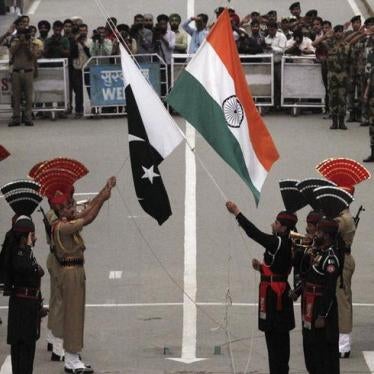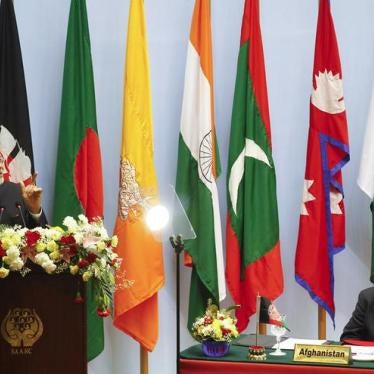I have heard this term a lot, most recently when I joined a heated BBC Radio debate on India: whataboutery.
This term does not refer to protesting inconsistencies by making a reasoned argument that presents opposing facts. Rather, whataboutery is used as a much more sinister challenge to human rights: the practice wherein perpetrators of violations, or their supporters, do not deny the abuses, but instead justify them and shout down criticism by citing the wrongdoings of their victims. All too often, they absolve collective punishment through whataboutery.
Human rights defenders often speak for the rights of the unpopular—including those accused of terrorism, murder, or rape—by calling for fair trials and protections from torture or ill treatment. While immediate revulsion to backing the rights of alleged criminals is an understandable emotional response, it is the responsibility of political leaders to uphold human rights and root societies in rule of law.
Instead, whataboutery has become a key part of populist political rhetoric, appealing to ethnicity, race, or religion. These awful justifications appear to be endless, particularly because social media offers a medium to express such views. Even democracies that have long endorsed universal human rights are faltering, whether in the United States, India, Australia, countries throughout Europe, or younger nations such as Bangladesh. Confronting the dilemma of terror attacks, rising crime, and a deluge of refugees is difficult, but instead of upholding human rights principles, too many political and religious leaders are promoting harsh, unrealistic alternatives. Their justifications for repressive countermeasures can cite alleged decades- or even centuries-old wrongdoings by particular groups of people. Meanwhile, majority groups, desperate for reassurance, believe that this sliding commitment to civil liberties is the appropriate response to the wrongs that they are forced to endure.
Read the full article >>










